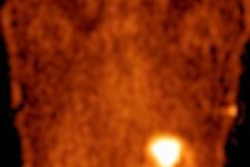Canadian radioisotope developer MDS Nordion of Kanata, Ontario, and nuclear medicine and MRI ligand developer Macrocyclics of Dallas have entered into a research and development collaboration to develop bifunctional chelates for use in molecular imaging and targeted therapeutic pharmaceuticals, the companies reported.
Bifunctional chelates are chemical compounds used to secure a radioisotope to a molecular targeting agent such as a monoclonal antibody, peptide, or other molecules specific for biologic receptors.
The three-year collaboration with Macrocyclics will focus on novel chelate structures, linkers, and conjugation methods to enable the use of a wider range of targeting vectors by the research community, according to MDS Nordion.
The objective is to develop, and make available, chelates that have performance features such as high-efficiency radiolabeling at room temperature, while maintaining stability comparable to industry-standard chelates, MDS Nordion said.
MDS Nordion said that the new chelates will be assessed with a variety of its radioisotopes including yttrium-90, lutetium-177, indium-111, and copper-64.
By AuntMinnie.com staff writers
May 26, 2005
Related Reading
MDS hires Hawkins as chief science and technology officer, April 28, 2005
Declining U.S. dollar hurts MDS Life Sciences' Q1, March 11, 2005
MDS Nordion developing external-beam RT system, September 30, 2004
MDS Life Sciences shows Q3 revenue gain, September 9, 2004
MDS Nordion, Nucletron partner, June 29, 2004
Copyright © 2005 AuntMinnie.com




















